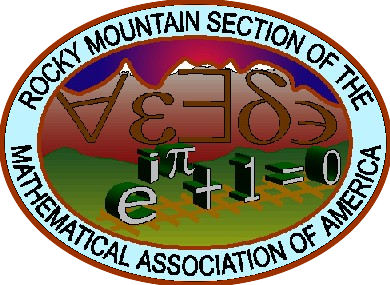The Powerfully Scintillating Pedagogy of Primary Source Projects: Reading the masters to stimulate student learning and transform our teaching.
Mathematics faculty and educational researchers are increasingly recognizing the value of the history of mathematics as a support to student learning. But how can mathematics instructors – especially those of us who are not historians of mathematics ourselves – tap into this potential? And how we do this while avoiding the risk of placing too much emphasis on learning the history of mathematics per se, as opposed to using that history to support the learning of mathematics? This workshop explores a classroom-tested collection of "Primary Source Projects" (PSPs) that offers an exciting and inspirational solution to these difficulties.
Designed to teach core mathematical topics, PSPs employ a selection of excerpts from primary historical sources that follow the discovery and evolution of the topic in question. Students read those excerpts, and through a series of exercises that are woven throughout the project, develop a fuller understanding of the mathematics in question as they react to the historical source, organize their thoughts about the mathematical ideas in it, and rediscover groundbreaking ideas for themselves. Along the way, students also engage directly in activities that mirror how mathematicians work: making sense of and interpreting ideas, stating conjectures and testing them, developing definitions and proving theorems.
Learning from the PSP via project tasks and in-class discussions thus fully replaces standard lectures, and does so in a fashion closely allied to the instructional technique of inquiry-based learning (IBL). The pedagogy of PSPs thus offers all the usual benefits associated with IBL – and so much more!! As in the case of the humanities and social sciences, where learning from primary sources has long been common practice, reading texts in which individuals first communicated their thinking offers an effective means of becoming educated in the broad sense of understanding both the traditions and the modern methods of our discipline. PSPs also offer undergraduates an opportunity to experience research at a frontier stage, as it was practiced by some of the greatest mathematical minds throughout time. The works of these thinkers are generally more compelling than traditional textbook expositions, and problems and the motivations for solving them are both more apparent and natural in the primary sources. As a result, the use of primary sources in the classroom thus promotes an enriched understanding of the subject and its genesis for us as instructors, as well as for our students.
Workshop participants will experience the pedagogy of PSPs by working together on sample PSPs selected from a collection that has been developed and classroom-tested with funding from the NSF for topics in the undergraduate mathematics courses ranging from pre-calculus and elementary statistics, to calculus and linear algebra, to abstract algebra and analysis. We will also discuss issues related to classroom implementation, and consider the benefits that this approach offers to students and teachers alike.
Workshop Presenter Biography
Janet Heine Barnett holds a Ph. D. in set theory from CU Boulder, and has taught mathematics at CSU-Pueblo since 1990. A 1995-1996 fellow at the Mathematical Association of America’s Institute for History of Mathematics and Its Use in Teaching (funded by the NSF), her scholarly interests have long included the history of mathematics and its use in promoting both student mathematical understanding and teacher reflection on pedagogical issues. She integrates history into her own teaching practice in a variety of ways, and is nationally and internationally known in particular for her work with primary historical sources in the undergraduate mathematics classroom. As part of that work, she currently serves as one of seven PIs on the national NSF-funded project TRansforming Instruction in Undergraduate Mathematics via Primary Historical Sources (TRIUMPHS). Throughout her tenure at CSU-Pueblo, Barnett has received several local and regional awards for excellence in teaching and scholarship. Most recently, she received the national Haimo Award for Distinguished Undergraduate Teaching from the Mathematical Association of America in 2017. A native of Pueblo, Janet shares her passions for mathematics and history, as well as dance and yoga, with her husband and traveling companion George W. Heine III, whom she met when they were both teaching mathematics as Peace Corps volunteers in the Central African Republic (1982-1984).


